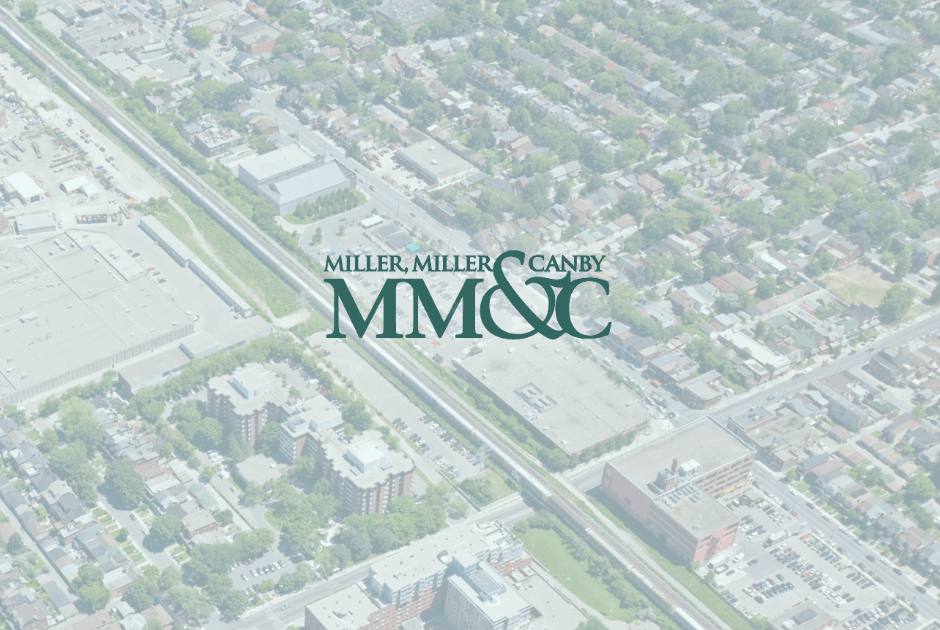
Advance Medical Directives are familiar to most of us. As written statements that detail a person’s wishes regarding medical treatment, they are prepared to ensure those wishes will be carried out if he or she becomes incapacitated and incapable of communicating them.
Most of us understand that it will be important to prepare these documents at some point in our lives. By thinking ahead, we can spare our loved ones the unnecessary stress of having to make difficult decisions on our behalf.
In Miller, Miller & Canby’s estate planning law practice (planning for the management and transfer of a person’s assets with an emphasis on minimizing applicable taxes) and our elder law practice (planning for a person’s disability with an emphasis Medicaid, VA benefits, and long-term care issues) we typically see clients come in to plan these documents because one of two things has happened. The client’s parents may have had no instructions in place and, as a result, the client experienced firsthand the anxiety of having to make difficult decisions, and would want to spare loved ones the same fate. On the other hand, the client may have experienced peace of mind in a situation where instructions were prepared and, therefore, wants to ensure the same positive experience for loved ones.
Equally as important as creating the Advanced Medical Directive is planning for what to do after the paperwork is prepared. Where should the directive be stored? If the directive is prepared, but cannot be accessed or found at the appropriate time, it might as well not exist. Unfortunately, this happens more often than it should.
You’ve Prepared the Directive…What’s Next?
Clients will want to provide copies of their Advance Medical Directive to their doctors and to the person designated to make the medical decisions for them (or let their agent know where the original is located). If your preference is for your children or other loved ones not to see the Advance Medical Directive ahead of time, as it might cause unnecessary stress, they should at least know that you have one and where to find it or the attorney who prepared it in the event it does become necessary to access the documents. Your attorney may also retain a duplicate of the original for you. There are also programs that allow for storing the Advance Medical Directive in the cloud so it may be accessed by any medical personnel universally.
Advance Medical Directives can be drafted to give clients a choice: (i) do they want to give the agent flexibility, e.g. the ability to do something different than stated in the document, in the event something “unforeseeable” occurs and the agent believes it is in the principal’s best interests, or (ii) do they want to stipulate that the agent simply follow the instructions as set forth. Most of the time, clients will know whether or not their agent is likely to follow their instructions and choose accordingly. The document can be revoked orally or in writing, which allows you to make changes if desired.
Thinking Beyond the Advance Medical Directive
The Advance Medical Directive is only one of the documents that should be in place when planning for disability or incapacity. There are additional documents that are equally important, such as a Financial Power of Attorney. But the Advance Medical Directive and Financial Power of Attorney both terminate in the event of death…which is why it is also necessary to plan for how your estate will be distributed when you pass away.
The bottom line is…it is always better to plan than to allow fate (or someone who ultimately may not make the decisions you would want) to make decisions for you and spare your loved ones any additional anxiety during what is already an extremely difficult time.
For more information about the preparation and planning of Advance Medical Directives, please contact Helen Whelan. To learn more about Miller, Miller & Canby’s Estates & Trusts and Elder Law practice click here.
Helen Whelan is a principal with Miller, Miller & Canby and concentrates her practice in Elder Law, Estate and Tax Planning and Trust & Estate Administration. She is licensed to practice law in Maryland, the District of Columbia and West Virginia and is also a CPA with a Masters’ Degree in Taxation.
May is National Elder Law Month. Learn more about this fast-growing area of the law here.








Share this Article: